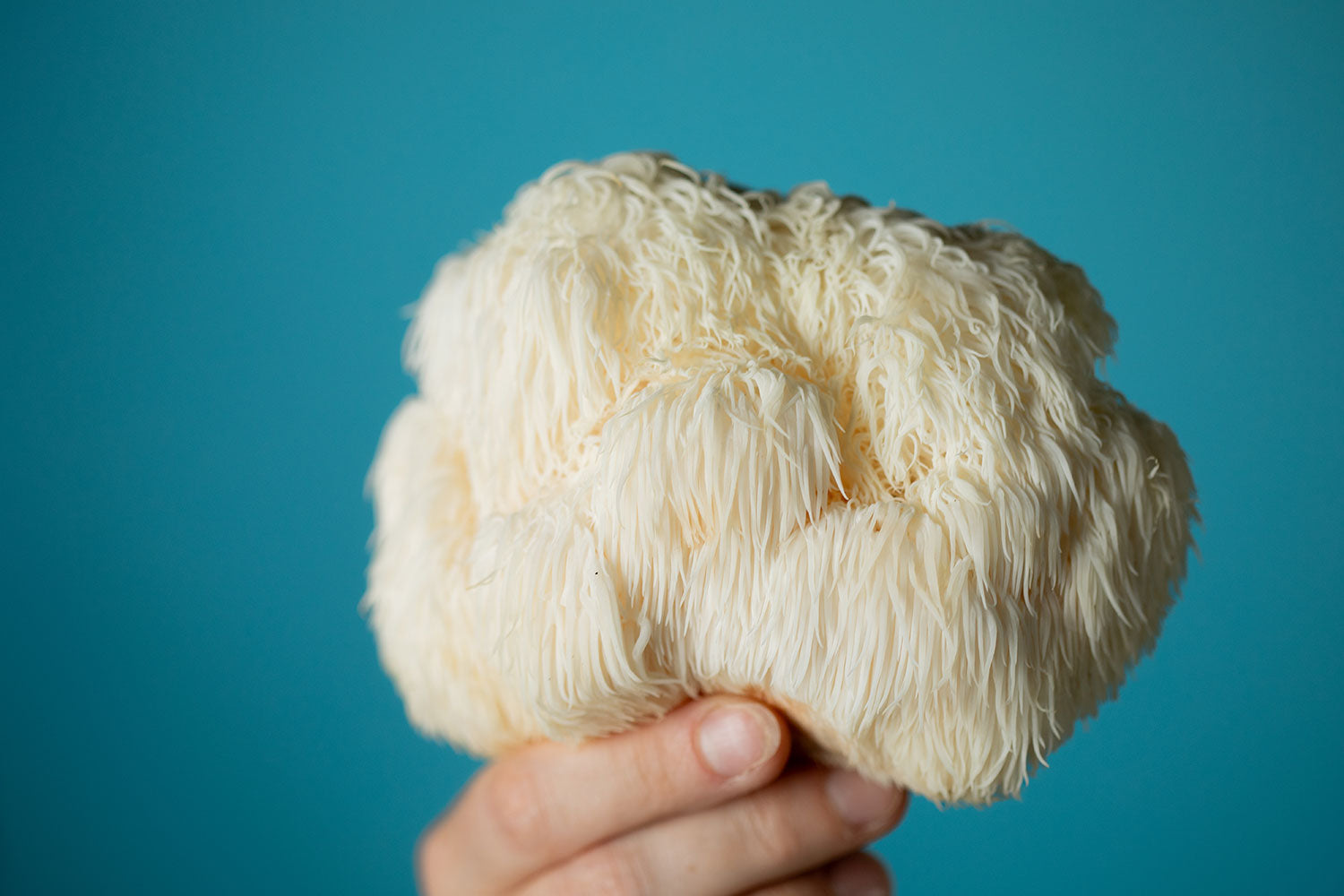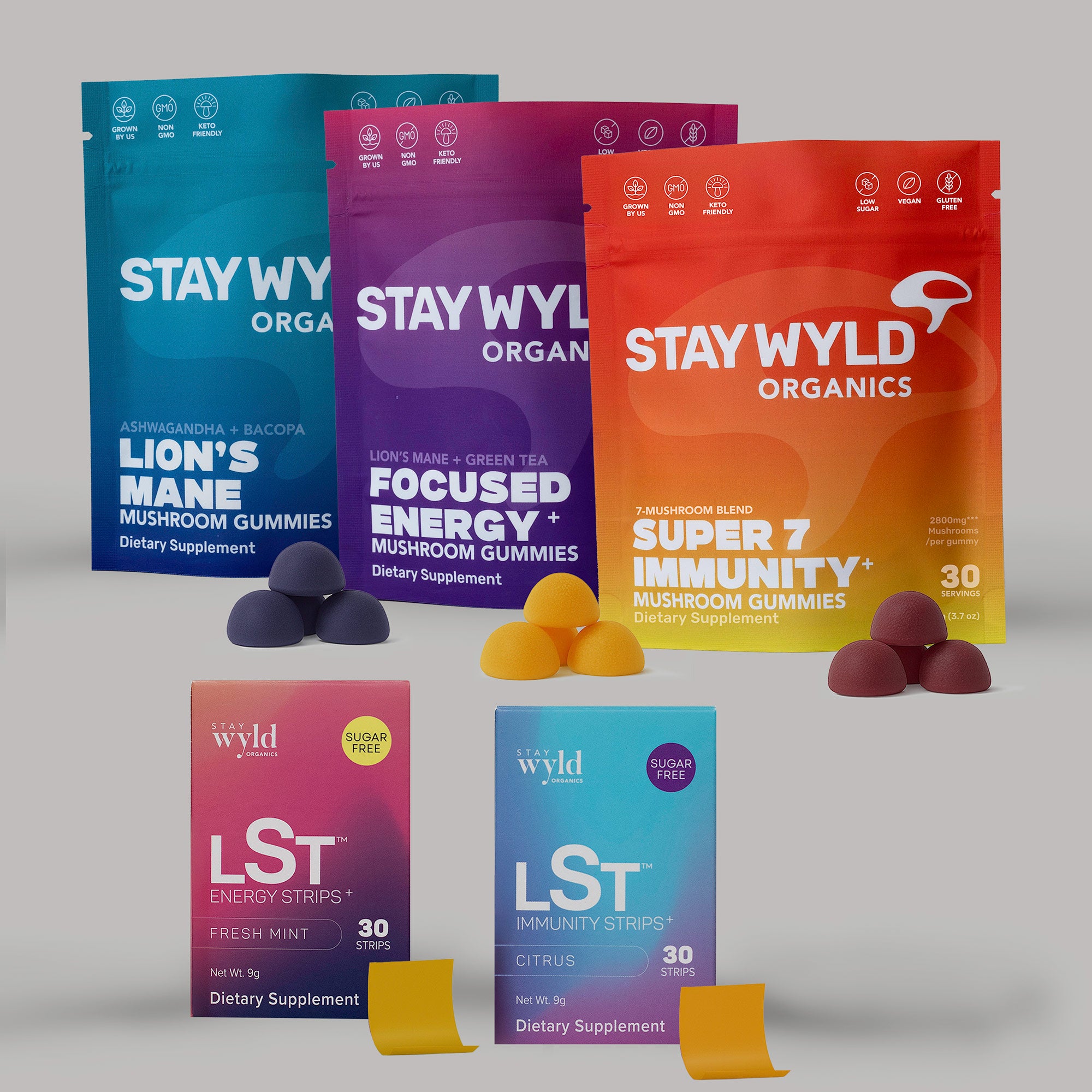Mushroom learning Center
Explore now

Best Sellers



Best Sellers



5 minute read
Lately, there’s plenty of publicity around functional mushrooms' benefits to humans, but nearly not as much information is available for our felines. Functional mushrooms have demonstrated their benefits for cardiovascular, respiratory, kidney, endocrine, and liver disorders, chronic infections, fatigue, compromised immune system, and cancer.
Can cats eat functional mushrooms? Yes, functional mushrooms for cats provide several health benefits, just as they do for humans. Maybe mushrooms aren’t your first thought about what to give your pet. Still, they offer a natural and safe way to incorporate bioactive compounds into your cat’s diet. They’re an excellent source for providing immune-supporting properties and a healthy inflammatory response.
This article looks at why functional mushrooms are a great compliment to your cat’s diet. Furthermore, We’ll also look into some of the most beneficial mushrooms for cats.
Edible mushrooms are a source of vitamins, minerals, and other essential nutrients, including digestive enzymes and antioxidants. Other mushroom species also support healthy cellular activity and the immune system.
That said, it’s crucial to note that only certain mushroom types support animals' mental and physical well-being. In fact, certain mushrooms contain toxins that lead to pet poisoning.
Are you wondering which mushroom types are safe and healthy for your cat? In the next section, we highlight some of our favorites.
There are eight beneficial mushrooms for your cat. They include:
Let’s look into some of the critical benefits of each of these healthy and safe mushrooms.
Chaga mushrooms (Inonotus Obliquus) are known as a “Gift from God.” These functional mushrooms are high in enzymes, antioxidants, B vitamins, and minerals. They’re also excellent support for a great immune system and healthy cellular activities.
Chaga mushrooms are especially beneficial for pets suffering from autoimmune diseases and allergies. They also support the normal functioning of cats with inflammatory bowel disease and diabetes.
Turkey tail mushroom for cats helps support healthy cellular activity and the immune system. They have multicolored patterns resembling wild turkey tail rings. Recent studies by the vet school at the University of Penn State showed that turkey tail mushrooms benefit pets suffering from hemangiosarcoma.
Furthermore, these mushrooms contain compounds that support a healthy digestive system and urinary tract.
Lion’s mane mushroom for cats gets its name from its unique appearance. Other common names include monkey head mushroom, bearded tooth mushroom, pom pom mushroom, and sheep’s head mushroom.
These functional mushrooms support the cat’s digestive tract health. The mushrooms are especially beneficial to older cats because they support cognitive function.
In Japanese, Maitake (Grifola frondosa) means “Dancing Mushroom.” The potent mushroom helps maintain the healthy functioning of the liver, supports the immune system, and helps keep blood sugar levels at normal ranges.
In addition, Maitake mushrooms help maintain the general well-being of cats. They also support cats suffering from liver issues and diabetes.
Some of the benefits of Maitake mushrooms include:
Cordyceps (Cordyceps militaris) also goes by the name caterpillar mushrooms. Why? Because they’re known to grow on caterpillars.
These functional mushrooms amp up the immune system, support normal blood values, and maintain normal kidney and liver function. Cordyceps help maintain healthy endurance in cats.
Reishi mushroom for cats is also known as the “Mushroom of Immortality.” The mushroom is an integral part of traditional Chinese medicine for pets. It helps maintain a healthy inflammatory response and supports the immune system.
Also, these mushrooms support healthy respiratory function, normal circulation, and support energy.
Reishi mushrooms are known for:
Lentinula edodes (Shiitake mushrooms) are among the best-studied mushroom supplements. They’re known as the “Elixir of Life” in Japan and are native to East Asia.
Shiitake mushrooms are an excellent protein source, and they also provide a spectrum of fatty acids, amino acids, vitamins, and minerals, a great complement to your cat’s diet.
Glucomannan is also found in these potent medicinal mushrooms and helps support normal blood sugar levels.
Shiitake helps with:
Royal sun (Agaricus blazei) is an immune-supporting mushroom containing high levels of polysaccharides and compounds supporting cellular growth. These mushrooms are suitable for:
Are mushrooms bad for cats? These are some of the questions running through many people’s minds. Well, feeding your cat mushroom supplements is a great way to maintain your pet’s general health.
It’s crucial to ensure you feed your cat healthy and safe mushrooms. Also, ensure you never feed your pet raw mushrooms as they’re challenging to digest, making them toxic.
The easiest and safest way of introducing mushrooms to your cat is by adding supplements to their diet. Organic and holistic mushroom supplement blends help supply the cat with the necessary minerals and nutrients.
Yes, you can prepare a mushroom broth for your cat. The recipe is as follows:
When added to your cat’s diet, functional mushrooms increase leukocyte count, enhancing their immune system. One of the best ways to introduce these mushrooms to your pet’s diet is through tincture or natural powder.
Keep in mind that functional mushrooms take time to work. You’re more likely to notice any benefits in 1-3 months, and these effects are often subtle.
Take time and explore these medicinal mushrooms for your pet. They might be a source of potent, nutrient-packed ingredients that’ll improve your best friend’s life.
All comments are moderated before being published.
This site is protected by hCaptcha and the hCaptcha Privacy Policy and Terms of Service apply.